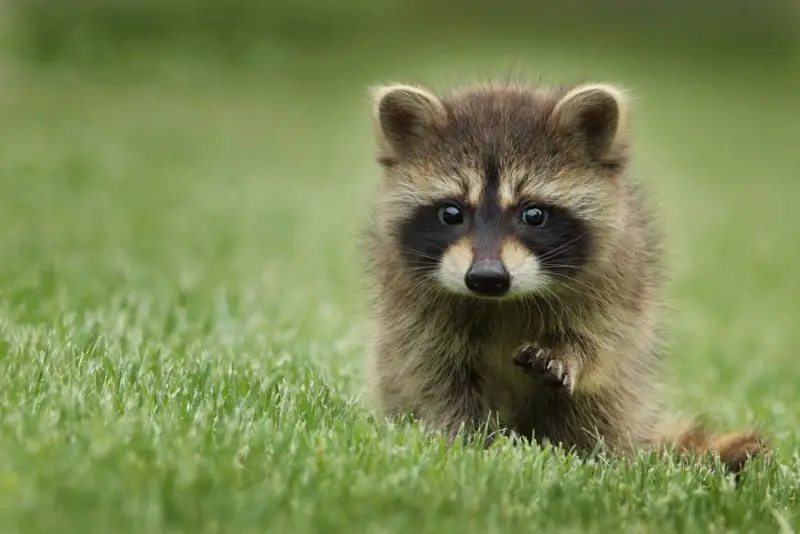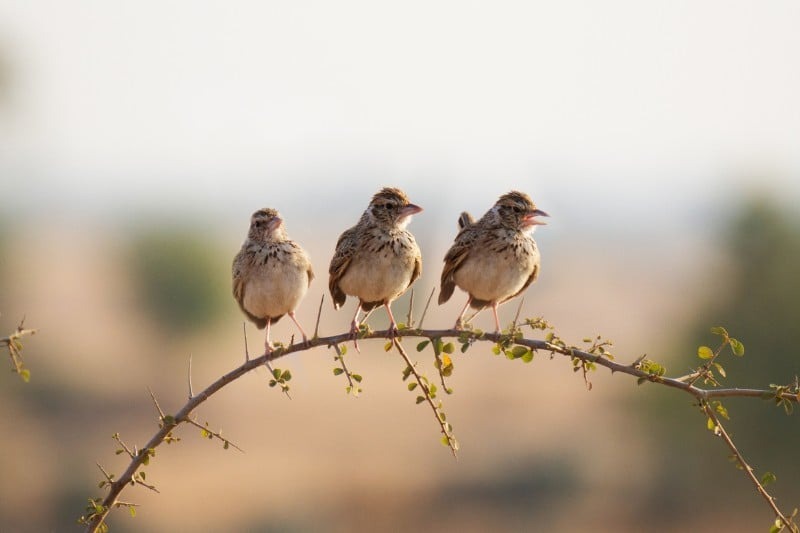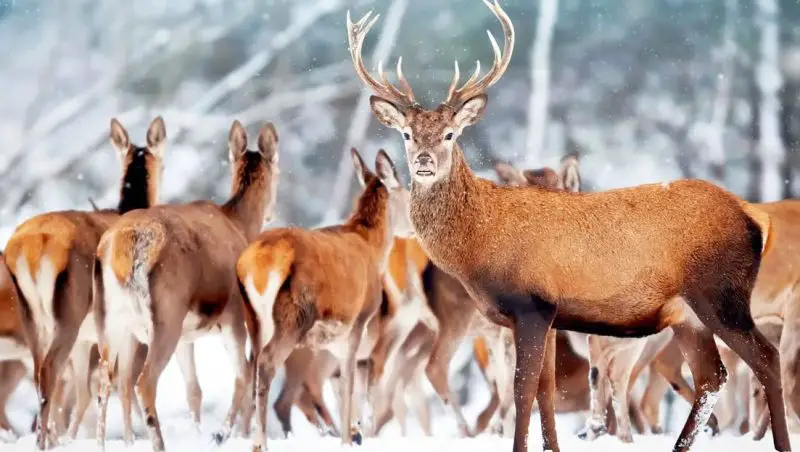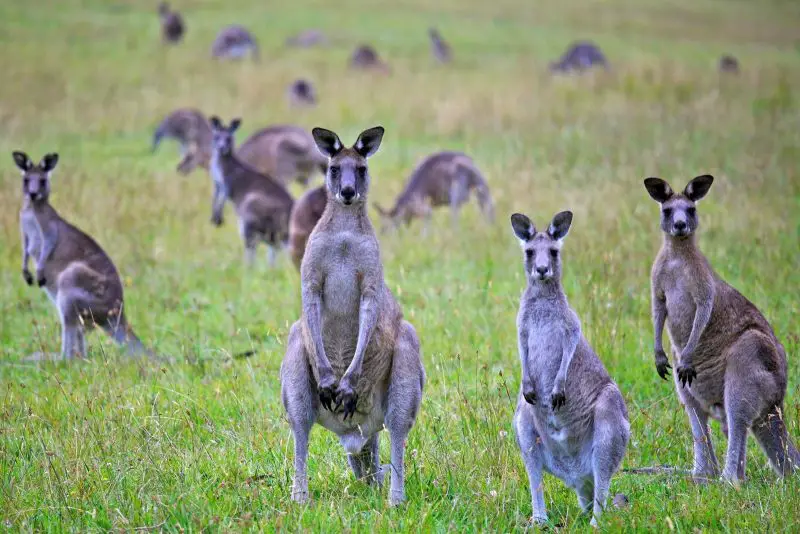Raccoons are one of the adaptable and resourceful animals in North America. With their distinctive black “masks” and nimble paws, these nocturnal creatures have earned a status for curiosity and cleverness. However have you ever ever puzzled what raccoons truly eat? The reality may shock you.
Raccoons are omnivores, which implies they eat each vegetation and animals. Their eating regimen is extremely various and adjustments based mostly on season, location, and availability of meals. Whether or not residing deep within the forest or wandering by suburban neighborhoods, raccoons can discover one thing to eat virtually anyplace. Let’s dive into 20 stunning meals that raccoons love — and what makes their eating regimen so fascinating.
Contents
- Understanding Raccoon Feeding Habits
- 20 Shocking Meals Raccoons Love
- 1. Crayfish
- 2. Frogs and Toads
- 3. Small Fish
- 4. Snails and Clams
- 5. Bugs and Grubs
- 6. Chook Eggs
- 7. Child Birds
- 8. Small Mammals
- 9. Nuts
- 10. Berries and Wild Fruits
- 11. Backyard Greens
- 12. Corn
- 13. Pet Meals
- 14. Human Leftovers
- 15. Carrion
- 16. Fallen or Frozen Fruit
- 17. Pumpkins
- 18. Shellfish
- 19. Roots and Tubers
- 20. Processed or Sugary Meals
- Why These Meals Matter
- Dwelling With Raccoons: Ideas for Householders
- FAQs About Raccoon Diets
- Conclusion
Understanding Raccoon Feeding Habits

The Omnivorous Nature of Raccoons
Raccoons are opportunistic feeders. They don’t focus on one sort of meals however as an alternative reap the benefits of no matter is best to search out. Within the wild, raccoons typically forage close to rivers, lakes, and wooded areas the place they will discover small animals, aquatic life, and fruit. In cities, they may discover rubbish cans, pet bowls, or compost bins. Their flexibility is a giant motive why raccoons thrive in so many environments.
Seasonal and Habitat-Based mostly Variation
A raccoon’s menu adjustments with the seasons. In spring and summer season, they like protein-rich meals akin to bugs, crayfish, frogs, and hen eggs. As autumn approaches, raccoons flip their consideration to fruits, grains, and nuts, storing fats for the colder months. In winter, when meals is scarce, they depend on leftover crops, rubbish, and no matter they will scavenge.
Why Understanding Their Food regimen Issues
Figuring out what raccoons eat helps individuals forestall undesirable encounters. If you happen to perceive what attracts them, you’ll be able to take easy steps like securing trash cans or harvesting fruit early. It additionally highlights their ecological function — raccoons are essential seed dispersers and scavengers that assist clear the setting.
20 Shocking Meals Raccoons Love
Listed below are 20 meals raccoons completely love — from pure delicacies to the snacks they steal from our backyards.
1. Crayfish
Crayfish are a raccoon’s prime delicacy. These crustaceans are plentiful in streams, ponds, and marshes — all widespread raccoon habitats. Utilizing their delicate paws, raccoons really feel beneath rocks and alongside muddy bottoms to detect crayfish actions, typically catching them in a single swift movement.
Crayfish provide a wealthy supply of protein and minerals, giving raccoons the vitamins they want for vitality. As a result of crayfish are comparatively simple to catch, particularly throughout low water ranges, they make up a big portion of the raccoon’s summer season eating regimen. Observers typically spot raccoon tracks close to creeks — a certain signal of their current midnight fishing journeys.
2. Frogs and Toads
Raccoons have a eager sense of listening to that helps them find frogs and toads alongside the water’s edge. They quietly stalk their prey, then use their dexterous entrance paws to grab these slippery amphibians earlier than they will hop away.
Frogs and toads are nutrient-dense, providing each protein and hydration. In ecosystems with loads of wetlands, these amphibians turn out to be a daily a part of a raccoon’s eating regimen. This searching habits additionally demonstrates the raccoon’s intelligence and endurance — they typically wait immobile for a number of minutes earlier than putting.
3. Small Fish
When the chance arises, raccoons turn out to be expert fishermen. They scoop up small fish akin to minnows, perch, or sunfish from shallow waters. Generally, they even scavenge useless fish washed ashore or left by bigger predators.
Fish present raccoons with high-quality fat and proteins that maintain them by lively nights. Raccoons residing close to lakes, rivers, or coastal areas typically rely closely on fish, particularly throughout hotter months when different meals sources could also be much less plentiful.
4. Snails and Clams
Snails, clams, and different mollusks are irresistible to raccoons, particularly these residing close to marshy or tidal areas. They pry open shells with outstanding power, typically utilizing small stones as leverage instruments — a habits not often seen in wild mammals.
These slow-moving prey are perfect for raccoons as a result of they require minimal vitality to catch. The mushy interior flesh affords a wealthy provide of vitamins, making mollusks a worthwhile meals supply in coastal habitats.
5. Bugs and Grubs
Raccoons like to dig in mushy soil to uncover bugs and grubs. Beetles, caterpillars, worms, and larvae are all a part of their pure menu. Their wonderful sense of contact helps them detect motion underground, even in full darkness.
For juvenile raccoons studying to forage, bugs are a simple and plentiful meals supply. These small creatures are full of protein and moisture, serving to raccoons keep hydrated and nourished throughout dry seasons.
6. Chook Eggs
Raccoons are notorious nest raiders. With their climbing abilities and sharp senses, they will simply discover hen nests in timber or shrubs. As soon as positioned, they use their nimble fingers to rigorously take away and eat the eggs inside.
Chook eggs are a concentrated supply of protein and fat. This opportunistic feeding behavior, whereas pure, typically places raccoons in battle with songbird populations. In forested areas, they’re one of many foremost predators of hen nests.
7. Child Birds
If a raccoon stumbles upon an unguarded nest containing hatchlings, it might eat the younger birds. Though this may sound brutal, it’s a part of nature’s steadiness — raccoons are opportunistic feeders that reap the benefits of what’s obtainable.
This habits usually happens throughout late spring and early summer season when child birds are most susceptible. Whereas they like simpler meals like eggs or fruit, raccoons received’t ignore such a simple protein supply.
8. Small Mammals
Raccoons sometimes hunt small mammals akin to mice, voles, or younger rabbits. Although not pure predators like foxes or coyotes, raccoons are succesful hunters when motivated by starvation or shortage of meals.
Catching mammals gives important energy and fat, particularly throughout winter when plant meals are scarce. These hunts are often brief and opportunistic — raccoons depend on stealth and pace fairly than lengthy chases.
9. Nuts
Nuts like acorns, walnuts, and beechnuts are raccoon favorites, particularly within the fall. They’re excessive in fat, which assist raccoons retailer vitality for colder months when meals is more durable to search out.
Raccoons typically bury or stash nuts in hidden places, returning later to eat them — very like squirrels. This foraging habits reveals their spectacular reminiscence and planning skills, important for surviving harsh winters.
10. Berries and Wild Fruits
Throughout summer season and early autumn, raccoons feast on berries akin to blackberries, raspberries, and wild grapes. These fruits are each candy and hydrating, serving to raccoons replenish vitality after lengthy nights of foraging.
Apparently, raccoons additionally assist unfold seeds by their droppings, contributing to forest regeneration. This mutual relationship between raccoons and fruiting vegetation is important to sustaining wholesome woodland ecosystems.
11. Backyard Greens
Raccoons typically raid yard gardens below the duvet of darkness. They’ve a selected style for tomatoes, melons, corn, and pumpkins. As soon as they uncover a backyard’s bounty, they have an inclination to return nightly till it’s picked clear.
Backyard raids can frustrate householders, however for raccoons, these cultivated vegetation are irresistible. The greens present hydration and pure sugars, providing a welcome different to their typical wild eating regimen.
12. Corn
Few meals tempt raccoons like ripe corn. Cornfields are magnets for these intelligent mammals, particularly proper earlier than harvest when the kernels are sweetest. Farmers typically discover proof of raccoon visits — partially eaten cobs or trampled stalks.
Corn gives fast vitality by its pure carbohydrates. It’s additionally simple to entry for raccoons, who can climb and pull down stalks utilizing their robust entrance paws. This makes it a seasonal favourite.
13. Pet Meals
Out of doors pet bowls are one of many greatest attractants for raccoons. Cat and canine kibble is excessive in protein and fats, making it an ideal substitute for his or her pure eating regimen. As soon as raccoons discover a supply, they’ll return usually at night time.
This habits typically results in human-wildlife encounters. Householders are suggested to convey pet meals indoors after darkish to keep away from undesirable guests. Raccoons are persistent and might even bear in mind feeding spots months later.
14. Human Leftovers
Raccoons are world-class scavengers. They’ll dig by rubbish cans for pizza crusts, burger wrappers, or discarded sweet. Their robust sense of scent helps them find meals from stunning distances.
City raccoons have tailored extremely nicely to residing round individuals. They’ll open lids, undo latches, and even tip over bins to achieve leftovers. Sadly, this behavior typically offers them a mischievous status in metropolis neighborhoods.
15. Carrion
Raccoons don’t waste meals. If they arrive throughout a useless animal, they’ll scavenge it. This helps recycle vitamins within the ecosystem and retains the setting cleaner.
Carrion consuming additionally advantages raccoons throughout lean seasons when contemporary prey is scarce. Their robust stomachs and adaptable immune programs enable them to digest decaying meat with out getting sick.
16. Fallen or Frozen Fruit
Raccoons are resourceful, particularly in winter. They typically eat fallen apples, pears, or different fruits that stay on the bottom or have frozen in a single day. These sugary treats give them an vitality enhance when different meals are unavailable.
Even in chilly climates, raccoons’ persistence pays off. They might dig by snow or leaf litter to uncover frozen fruit, displaying simply how adaptable they’re to find diet all year long.
17. Pumpkins
Pumpkins are each seasonal ornament and raccoon delight. Throughout fall, these nocturnal foragers chew by pumpkin rinds to achieve the mushy, candy flesh inside. The seeds additionally present worthwhile fat.
Householders typically discover half-eaten pumpkins on their porches after Halloween. To raccoons, it’s a ready-made feast — nature’s dessert served in a sturdy orange shell.
18. Shellfish
Coastal raccoons get pleasure from entry to shellfish like crabs, oysters, and mussels. Their dexterous arms enable them to pry open shells with spectacular ability. They often hunt alongside tidal flats throughout low tide, the place shellfish are uncovered.
These high-protein meals assist maintain raccoons residing close to saltwater environments. Their capacity to adapt their eating regimen based mostly on habitat reveals simply how versatile these mammals are.
19. Roots and Tubers
Raccoons typically dig up roots, bulbs, and tubers, notably when different meals sources run low. They use their sharp claws to excavate the soil and extract underground vegetation like wild carrots or yams.
Though these meals aren’t their first selection, they supply carbohydrates that assist raccoons keep vitality. This fallback technique demonstrates their spectacular survival instincts.
20. Processed or Sugary Meals
Raccoons have developed a stunning candy tooth. In city areas, they typically steal donuts, cookies, and even ice cream from open trash bins or outside tables. Their adaptability to human environments has expanded their eating regimen far past the wild.
Whereas these processed meals could cause digestive issues, raccoons’ curiosity makes them onerous to withstand. Their love for sugary snacks is a testomony to how carefully they’ve realized to stay alongside people — and the way a lot they benefit from the occasional junk meals deal with.
Why These Meals Matter
Effectivity and Comfort
Raccoons are strategic feeders. They select meals which might be each excessive in diet and straightforward to acquire. This explains why they frequent rubbish bins and pet bowls — the reward outweighs the trouble.
Seasonal Adaptation
Raccoons modify their eating regimen all year long. In hotter months, they eat contemporary fruits, bugs, and amphibians. In cooler seasons, they depend on nuts and leftovers. Their capacity to shift diets retains them thriving year-round.
City Survival Abilities
Raccoons have realized to stay alongside people. City areas provide limitless meals alternatives — trash cans, gardens, and hen feeders. This adaptability makes them profitable but in addition brings them nearer to human battle.
Ecological Function
By consuming fruits and nuts, raccoons unfold seeds throughout landscapes. Their scavenging helps clear up carcasses and waste, contributing to ecosystem steadiness. They might trigger nuisance, however in addition they play an essential pure function.
Dwelling With Raccoons: Ideas for Householders
Defending Your Backyard
To maintain raccoons away, harvest ripe fruits rapidly, use motion-activated lights, and set up fencing. Cowl compost piles and keep away from leaving meals scraps outside. Small adjustments can forestall nightly raids.
Securing Trash and Pet Meals
At all times use raccoon-proof trash bins with tight lids. Deliver pet meals inside after darkish. Raccoons have unbelievable dexterity and might open free containers simply.
Keep away from Feeding Wildlife
Feeding raccoons deliberately could cause long-term issues. They might lose their concern of people, harm property, or unfold ailments like rabies. It’s finest to allow them to discover meals naturally.
Protected Remark
If raccoons go to your yard, get pleasure from watching them from a distance. Keep away from interplay or makes an attempt to entice them your self. Name native wildlife providers in the event that they turn out to be a persistent downside.
FAQs About Raccoon Diets
Do raccoons wash their meals?
The well-known “washing” habits isn’t actually about hygiene. Within the wild, raccoons dip meals in water as a result of it enhances their sense of contact, serving to them detect prey or take away particles.
Are raccoons nocturnal?
Sure, raccoons are primarily nocturnal. They like foraging below the duvet of darkness to keep away from predators and people. Nevertheless, you could sometimes see them in the course of the day in secure or food-rich areas.
Can I safely feed raccoons?
It’s not beneficial. Feeding raccoons encourages dependency on people and will increase the danger of property harm and illness unfold. Wildlife consultants strongly advise towards it.
How can I cease raccoons from raiding my trash?
Use heavy-duty containers with locking lids. Retailer trash indoors or in safe bins till assortment day. Sprinkling ammonia or vinegar close to trash cans can even deter them.
What meals are unhealthy for raccoons?
Processed meals, sweets, and salty snacks are dangerous. This stuff could cause digestive issues and malnutrition. Raccoons are finest left to their pure, balanced eating regimen.
Conclusion
Raccoons are outstanding survivors. Their eating regimen, which ranges from crayfish and fruits to pet meals and leftovers, reveals simply how adaptable they’re. This flexibility permits them to thrive in forests, farmlands, and even bustling cities.
Whereas raccoons’ curiosity can result in mischief in our trash or gardens, it’s a part of their pure drive to search out meals wherever they will. By understanding what raccoons eat, we will take steps to guard our properties and coexist peacefully with these clever creatures.
Subsequent time you see a raccoon prowling at night time, bear in mind — it’s simply looking for its subsequent meal in a world stuffed with surprises.




